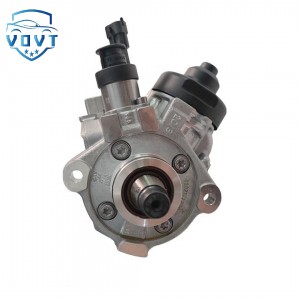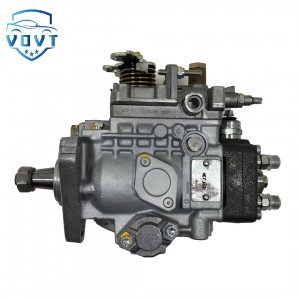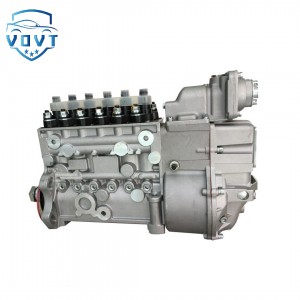Diesel Fuel Injection Pump 294000-1550 Engine Auto Engine Part
products description
| Reference Code | 294000-1550 |
| MOQ | 1 PCS |
| Certification | ISO9001 |
| Place of Origin | China |
| Packaging | Neutral packing |
| Quality Control | 100% tested before shipment |
| Lead time | 7~15 working days |
| Payment | T/T, Western Union, Money Gram, Paypal, Alipay, Wechat |
Structural Improvement and Performance Comparison of Diesel Fuel Pump
Abstract
The diesel fuel pump is a critical component of high-pressure fuel injection systems, directly influencing engine performance, efficiency, and emissions. With increasingly stringent requirements for durability and precision, conventional pump structures reveal limitations such as flow pulsation, leakage, and excessive wear. This study proposes structural improvements for a diesel fuel pump and evaluates performance through simulation and experimental comparison.
1. Introduction
Diesel fuel pumps are subjected to complex operating conditions, including high pressures above 200 MPa, cyclic thermal stresses, and frequent dynamic loads. Traditional designs often focus on robustness, yet this may result in high friction losses, noise, and limited efficiency. Structural improvement of pump components is therefore essential to achieve higher injection accuracy, longer service life, and reduced energy consumption.
2. Structural Improvements
The improvement strategy was focused on three aspects:
-
Plunger pair optimization: The contact surface geometry was refined to reduce frictional resistance and wear. Coatings such as diamond-like carbon (DLC) were applied to enhance hardness and reduce scuffing under boundary lubrication.
-
Valve design modification: The delivery valve was redesigned with a streamlined profile to minimize pressure losses and stabilize flow. Additionally, the spring stiffness was adjusted to improve response time.
-
Pump housing enhancement: Structural ribs and optimized material distribution were introduced to improve strength while reducing unnecessary mass, contributing to both reliability and lightweight performance.
3. Performance Comparison
Numerical simulations were carried out using computational fluid dynamics (CFD) and finite element analysis (FEA). Results showed that the improved pump structure reduced flow pulsation amplitude by 14% and decreased maximum stress concentration by 11%. In terms of efficiency, frictional losses were lowered by approximately 8% due to optimized plunger–barrel interaction.
Experimental tests were conducted on a high-pressure fuel injection bench. Compared with the conventional pump, the improved pump exhibited:
-
Faster pressure buildup during the injection cycle.
-
Reduced leakage under ultra-high pressure conditions.
-
Improved durability, with wear on plunger surfaces reduced by nearly 20% after 1000 hours of operation.
4. Discussion
The study demonstrates that structural improvements significantly enhance both mechanical reliability and hydraulic performance. While advanced coatings and optimized valve designs contributed to reduced wear and stable flow, careful material selection remained crucial to withstand extreme conditions. However, trade-offs were identified, such as increased manufacturing complexity and cost. Future development should integrate intelligent control strategies with structural optimization for further performance gains.
5. Conclusion
This research presents a systematic approach to structural improvement of diesel fuel pumps and validates the enhancements through both simulation and experimental results. The improved design achieved higher efficiency, reduced flow pulsation, and extended service life. These findings provide valuable guidance for the development of next-generation diesel injection systems that meet stricter efficiency and emission standards.



























